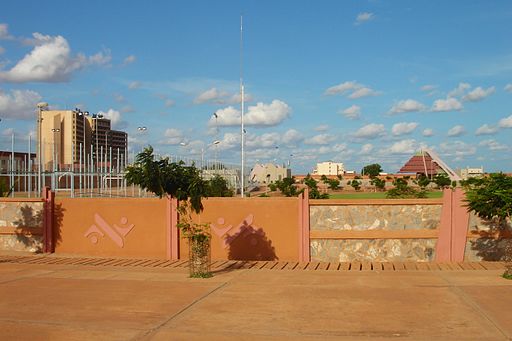September is the rainy season in Burkina Faso. While streams keep running down the streets of Ouagadogou, the country experiences anxiety and tension before the upcoming elections that will be held this year in October .
Even if data clearly shows how poor Burkina Faso is compared with the rest of the world, the younger generation is strongly fighting and hoping for a change. Last year the future of Burkinabé politics faced a great twist with the November pacific people’s revolution which made many international headlines speak about Burkina.
Since 1987, Burkina Faso was headed by Blaisé Compaoré. He managed to hold the presidency during two and then three five-year terms. No matter how many amendments had been approved in order to fix a term-limit on presidency, Compaoré managed to be re-elected also in 2010: because he was in office when the amendments were made, he proved that they did not apply to him.
Compaorè used an unusual formula to achieve relative stability in Burkina. Authoritarianism mixed with some traces of democracy, translated in a system that gravitates around Comparoe’s dominant and charismatic political power which definitely failed to build sustainable institutions. Now, foundations for some sort of democracy have eroded while there are fears of military ways to intervene massively in national politics as it already happened in the past.
Now, one year after that peculiar uprising that forced Blaisé to resign and flee –event that looks similar to Arab Spring’s uprisings-, the military government in charge is leaded by Isaac Zide. Of course his leadership would not exactly represent the type of complete break that Burkinabe people wanted with the painful past, as embodied in Compaoré’s 27 years in power.
But things are more complicated. The forthcoming elections look as something tangled and dark. First, members of the old regime may be permitted to join the electoral process. Secondly, eleven candidates are currently running for president. What is more, no one of the parties competing in these elections have a program that addresses the issue of underdevelopment, which is fundamental.
“Today, I cannot guarantee that all stakeholders will accept defeat” declared Aly Sanou from Mouvement Burkinabe des droits de l’homme et des peuples (MBDHP). He therefore sees civil society, a non-partisan entity in the electoral process that knew what to do during last year revolution, as having a crucial role to play, also this time.
To sum it up, future perspectives prove uncertainty while a great part of Burkinabé people believe that the poll will not be peaceful at all. Or maybe, they will just usher in a new era and a new leader. This October, tune in to Burkina Faso’s news and check it out.


